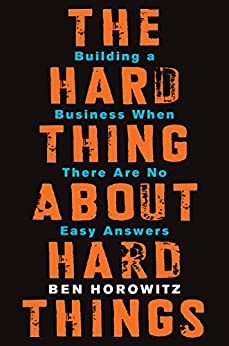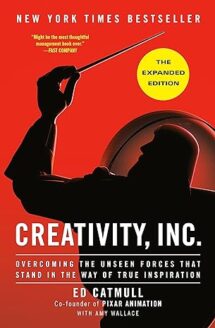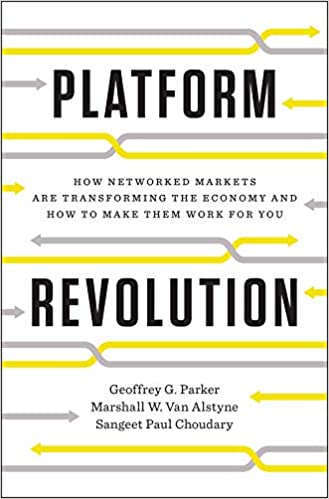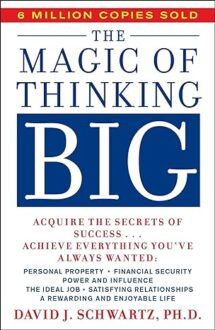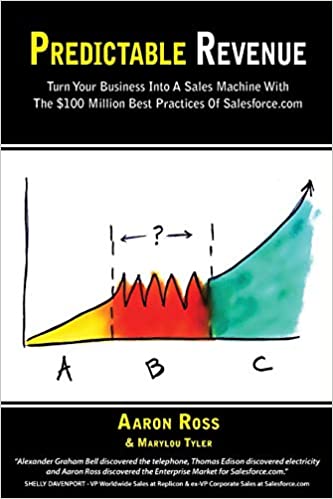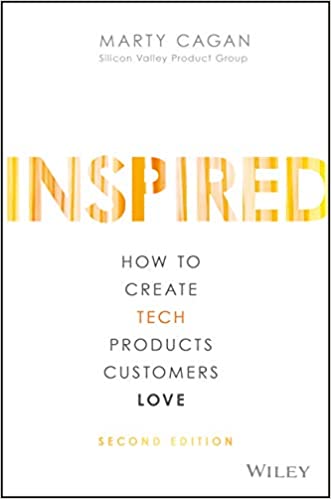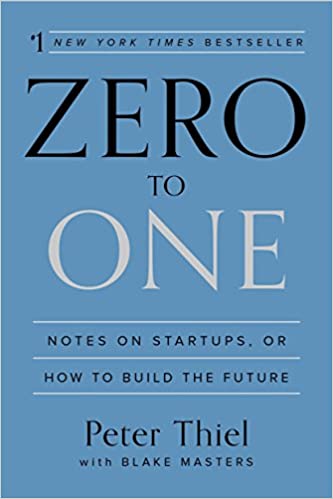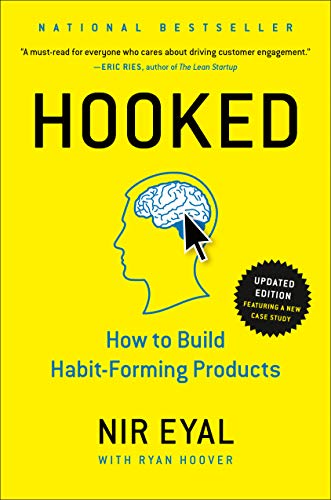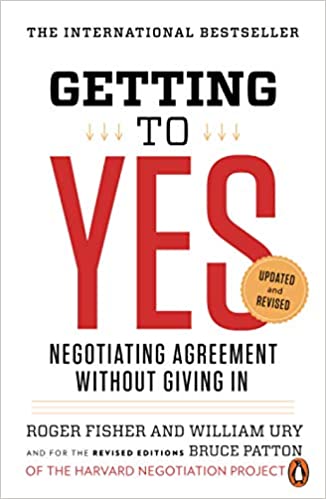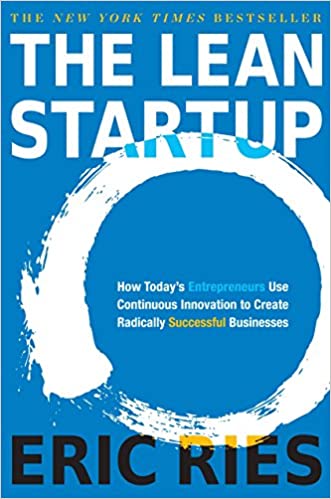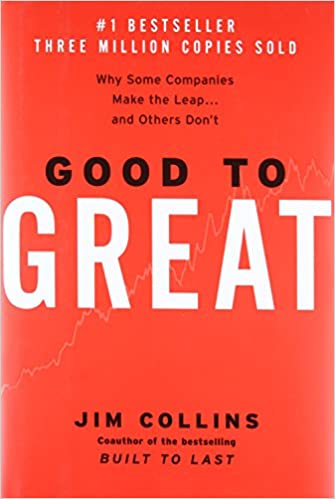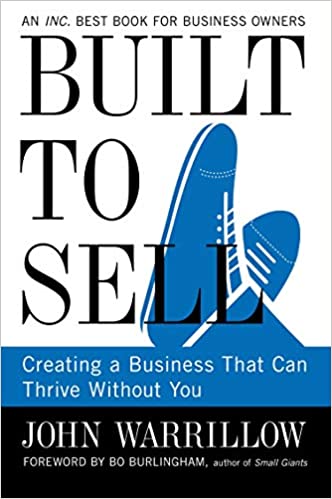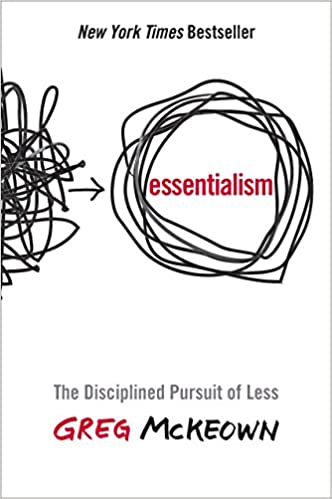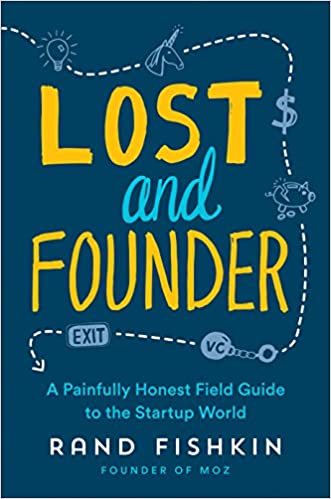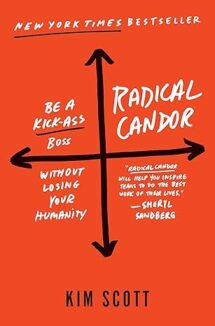Best Books For Startup Founders (2025 Update)
We’ve scoured painstakingly through hundreds of books and picked out our top fifteen books for startup founders. Each book comes with a short overview along with why you should read it, what you’ll learn, and a short testimonial for your convenience. Good luck – and happy reading!
The Hard Thing About Hard Things
- Overview: Ben Horowitz of Andreessen Horowitz shares insights from his decades-long career at the heart of Silicon Valley. Building on the success of his popular blog, Horowitz explains how to build a business when there are no easy answers, using practical, hands-on advice that you won’t find anywhere else, especially not in business school.
- Key takeaway: Running a business isn’t easy, and sometimes there isn’t a rulebook to follow. Advice here includes focusing on exploiting strengths instead of trying to ensure there are no weaknesses. Know what needs to be done and focus on that instead of allowing yourself to be sidetracked. And be sure to absorb Horowitz’s story so you can learn from what worked (and what didn’t) for him.
The EconomistThere’s more than enough substance in Mr. Horowitz’s impressive tome to turn it into a leadership classic.
Creativity Inc
- Overview: Ed Catmull is the founder of Pixar and a man who worked closely with both George Lucas and Steve Jobs in his early years. His vision led, after nine years, to the release of Toy Story, one of the most groundbreaking films of the latter part of the 20th century. In this book, he tells his story while providing actionable, tactical advice for entrepreneurs, management teams, and CEOs. If you want to build a company culture that can rival Pixar’s and revolutionize the way you work, this is the book for you.
- Key takeaway: Catmull explains, “If you give a mediocre idea to a brilliant team, they’ll either fix it or throw it away and come up with something better.” It’s a timely reminder of how building the right team is the foundation of any successful business, and he provides a range of tips to help you go ahead and do that.
Forbes MagazineJust might be the best business book ever written.
Platform Revolution
- Overview: The central thesis of Platform Revolution is that new sites like Facebook, PayPal, and Uber have revolutionized entire industries, along with the way that we live. Modern startup founders can often build entire businesses on the back of these platforms, but they can also set out to create new platforms of their own. This book, then, is essentially a guidebook to the current state of the market along with case studies, tips, and tricks that you can take away with you to survive and thrive in our 21st-century world.
- Key takeaway: Platforms beat pipelines because platforms scale more efficiently by eliminating gatekeepers and using data-based tools to create community feedback loops. In contrast, traditional pipeline firms are costly and inefficient, as well as difficult to grow and scale.
Andrew McAfee, principal research scientist at MIT and coauthor of The Second Machine AgePlatform Revolution is a manual for the disruption of your industry. You can either read it or try to keep it out of the hands of your competitors’ present and future. I think it’s an easy call.
The Magic of Thinking Big
- Overview: This is one of the oldest books on our list, having initially been written back at the tail end of the 1950s. Don’t make the mistake of discounting it because of that, though. The Magic of Thinking Big has been a staple business book for generations, and with good reason. It’s particularly relevant to startups and entrepreneurs because it can help readers overcome imposter syndrome and more objectively estimate and work toward their full potential.
- Key takeaway: One of the most profound messages of The Magic of Thinking Big is the idea that in competition, you should play fair. You can compare being a founder/entrepreneur with being an elite sportsperson. If you play fairly, you’ll be thought of as honorable by both your opponent and spectators, and that will help you to win allies in the long run even if you lose that particular game. If you cheat, people are going to notice and word is going to spread.
ForbesThe Magic of Thinking Big reminds readers that success frequently depends on others, so treating everyone with respect is good for all involved.
Predictable Revenue
- Overview: This book aims to teach readers how they can follow in the footsteps of Salesforce.com, which was able to use the techniques talked about here to add $100 million in recurring revenue to the company. As you might guess from the name, the goal is to create predictable revenue streams that can be relied upon for the months and years to come. It’s basically a guide to sales for people who hate sales, which sounds like most of the entrepreneurs that I’ve come across.
- Key takeaway: Being told “no” isn’t always a bad thing. In fact, it can often lead to big opportunities, and it’s not unusual for a no to turn into a yes. Don’t be fooled into thinking that this is just going to be one of those wishy-washy guides that are ten a penny and that don’t actually tell you anything, though. There are a ton of practical tips that you can take and apply to your own company, just be warned that you’re going to need to pay for Salesforce.com if you want to use most of them.
Kurt Daradics, CEO of Freedom SpeaksI couldn’t put it down. It’s saved me so much time, and now revenue is ramping up. After reading the book, we closed major deals immediately with the strategies.
Inspired
- Overview: Inspired is all about helping readers to develop better products. People love Apple because they create simple products that are easy to use. The problem is that it’s not always easy to identify the insights that will allow you to create these products, and that’s where this book comes in. Written by product management expert Marty Cagan, Inspired will leave you, uh, inspired, providing you with all the information you need to create an inspired, successful business.
- Key takeaway: Products will only be successful if they’re valuable, usable and feasible, and so if you can’t achieve that then it’s not worth building anything. One of the major lessons that’s repeated over and over throughout this book is that you’ll want to test and iterate your product as much as possible. Work with an interaction designer to create a prototype and test that over and over again before forging ahead with creating a minimal viable product (MVP).
Chad Dickerson, Former CEO of EtsyIf you only have one book on product management, this is the one.
Zero to One
- Overview: Zero to One is possibly my favorite of all of the books on this list, if only because it was written by Peter Thiel, a man who definitely knows his stuff. It’s basically a book on innovation, and while there’s no practical way for Thiel to provide a list of steps that you can follow to become successful, he has some great stories and a bunch of hard-earned lessons that make his book well worth reading.
- Key takeaway: It’s hard to hone in on any individual takeaway in a book that’s so full of wisdom, and part of the joy of reading this book comes from learning from Thiel’s own unorthodox approach to business and the world. Still, Thiel makes some excellent points, such as that the great companies of tomorrow will be those that can scale and which can solve people’s problems. Much of it is surface-level stuff, but you’ll certainly come away from reading this with a new perspective on the world.
Elon Musk, CEO of Tesla and SpaceXPeter Thiel has built multiple breakthrough companies, and Zero to One shows how.
Hooked
- Overview: Hooked is all about providing the insights you need to create a killer product that brings customers back again and again. We’re talking about everything from establishing stickier habits to carrying out behavioral analysis to better understand your target audience. For founders, it’s an essential aid to getting the foundations in place for a groundbreaking product launch, no matter what industry you work in. It takes a lot of the guesswork away and turns product development into a more scientific process with a clearly defined set of goals.
- Key takeaway: The main thing to take away from Hooked is the four-step Hook Model that the author provides for businesses to develop better products:
1 – Trigger: External or internal factors that cause users to think about your product.2 – Action: What’s the simplest behavior they can take in anticipation of reward?3 – Variable Reward: This should reward people for taking an action and leave them wanting more.4 – Investment: What can be done next to encourage people to return and make another purchase?
Dave McClure, Founder of 500 Startups[Hooked is] an essential crib sheet for any startup looking to understand user psychology.
Getting to Yes
- Overview: In print for over thirty years and showing no signs of losing its relevance, Getting to Yes is all about helping you to secure win-win agreements both at work and at home. Based on the work of the Harvard Negotiation Project, this book will give you a simple, step-by-step process to follow whenever it comes to negotiation, including resolving conflicts or seeking lower prices from partners and suppliers.
- Key takeaway: Possibly the most important thing to remember is that it’s all about consent and coming up with an agreement that suits all parties. You won’t get to yes just by bothering people until they give in, and even if you did, it’s unethical. Your time will be much better spent finding a mutually beneficial environment that works for everyone.
Business WeekThe authors have packed a lot of commonsensical observation and advice into a concise, clearly-written little book.
The Lean Startup
- Overview: This book is so influential that even the methodology that it espouses has its own Wikipedia page, as well as hundreds of thousands of devoted practitioners from around the globe. Being lean is all about understanding what your customers really want and cutting out all of the extraneous rubbish that doesn’t help them solve problems and build their business.
- Key takeaway: For businesses to be successful, they need to constantly test their visions, making changes on the fly and adapting quickly enough to avoid being left in the dust by the competition. One of the key models to remember is the Build-Measure-Learn Feedback Loop, in which a company can better ensure that their product development is on point.
Harvard Business ReviewThe Lean Startup changes everything.
Good to Great
- Overview: Good to Great is the result of five years of dedicated research from author Jim Collins, and that hard work shows in the final product. It’s one of the most evidence-based reads that we’ve come across, and it does a great job of shining a spotlight on all of the different variables that separate the good companies from the truly great ones.
- Key takeaway: Every single “good-to-great” company that the author studied had a level five leader – that is, one who consistently showed humility, modesty, and the ability to reign in their ego. Collins also hammers home the point that while companies often look like an overnight success from the outside, usually a huge amount of effort has gone into getting them there.
The Financial TimesThe biggest selling and most influential management book of the new millennium.
Built to Sell
- Overview: This book stands out from the others that we’ve talked about today because it teaches its lessons by telling a story. The reader follows a fictional design agency owner and uses the challenges that he faces to illustrate the kinds of real-world scenarios that people face when building — and selling — a business.
- Key takeaway: The biggest mistake that entrepreneurs make is to create a company that can’t exist without them. Warrillow argues that the goal instead should be to build a company that doesn’t rely on you so that when the time comes to sell, you’re able to do so. This can require careful balancing, but when you get it right, you’re able to create a business that has real value. Get it wrong, and you’ll either not be able to sell your company or you’ll only be able to sell if there’s a clause stipulating that you have to stay on as an employee under the new owners.
Seth GodinThere’s no tooth fairy for selling a business. It takes planning and a real understanding of what works. I bet you’ll find yourself (like me) recommending this book to your friends who want to sell their businesses one day but don’t understand what that’s going to take.
Essentialism
- Overview: In today’s fast-paced, modern world, we’re all struggling to come to terms with information overload. The good news is that in this book, Greg McKeown helps you to challenge the idea that you have to do everything, focusing instead on where your efforts will have the greatest impact. He must be doing something right because his courses in leadership and strategy have been in high demand at such tech giants as Apple, Google, and Facebook.
- Key takeaway: Selectivity is vital. By being more selective about what projects and commitments you take on, you can better ensure that you’re covering the essentials instead of getting distracted by the little details. For entrepreneurs to be successful, they need to perfect the art of learning to say yes to the right projects at the right time and in the right way, as well as to do the opposite and get used to saying no.
Adam Grant, Author of Give and TakeEssentialism holds the key to solving one of the great puzzles of life. So drop what you’re doing and read it!
Lost and Founder
- Overview: Author Rand Fishkin is the founder and former CEO of Moz, so there’s a pretty good chance that you’ve already used one of his products. His book basically tells the story of his company, covering the fifteen-year stretch in which it went from a debt-ridden family business to a $45 million-a-year business. It’s more of an inspirational read than one that will provide a step-by-step process for you to follow, but there’s plenty of room for both on your bookshelves.
- Key takeaway: One of the biggest lessons here is all about the importance of empathy. By sharing stories from his own career, Fishkin shows how empathy should come first and foremost, to the point at which you should prioritize taking care of your employees and your customers ahead of growing the business or paying shareholders.
Nir Eyal, Author of HookedYou won’t find a more honest, raw and helpful look into the trenches of founding a tech startup than this book.
Radical Candor
- Overview: In Radical Candor, Kim Scott uses the lessons that she’s learned from her time at Google and Apple to provide guidance on building companies and relationships by saying what you mean. In many ways, it’s a guide to communication, but it’s a guide to communication for the internet age and provides a simple three-step process that everyone can follow.
- Key takeaway: The best teams are those where the boss has built positive relationships with their employees through three guiding principles:
- Make it personal
- Get sh*t done
- Understand why it matters
To achieve these principles, leaders need to:
- Challenge directly
- Care personally
Sheryl Sandberg, author of Lean InReading Radical Candor will help you build, lead and inspire teams to do the best work of their lives.
Conclusion
Now that you know just a few of the best books for founders, it’s time for you to read a few so you can learn from the best in the business. The good news is that you don’t have to read all of them to start to benefit, and you’re welcome to pick and choose from the ones that caught your attention the most.
Remember that the physical book is no longer the only format available. You might find that e-books are a better fit for you, especially if you spend a lot of time traveling, and you can read those on e-readers, smartphones, tablets, and even computers.
Alternatively, if you spend a lot of time driving, consider taking out an Audible membership and giving audiobooks a try. You can listen to audiobooks on the commute, at the office, and even in the shower, and I know a lot of people who listen to them while doing the housework to maximize their productive time and to squeeze some extra reading in.
And so with all that said, all that’s left is for you to let me know in the comments what book you’re planning on picking up next. I look forward to hearing from you!
